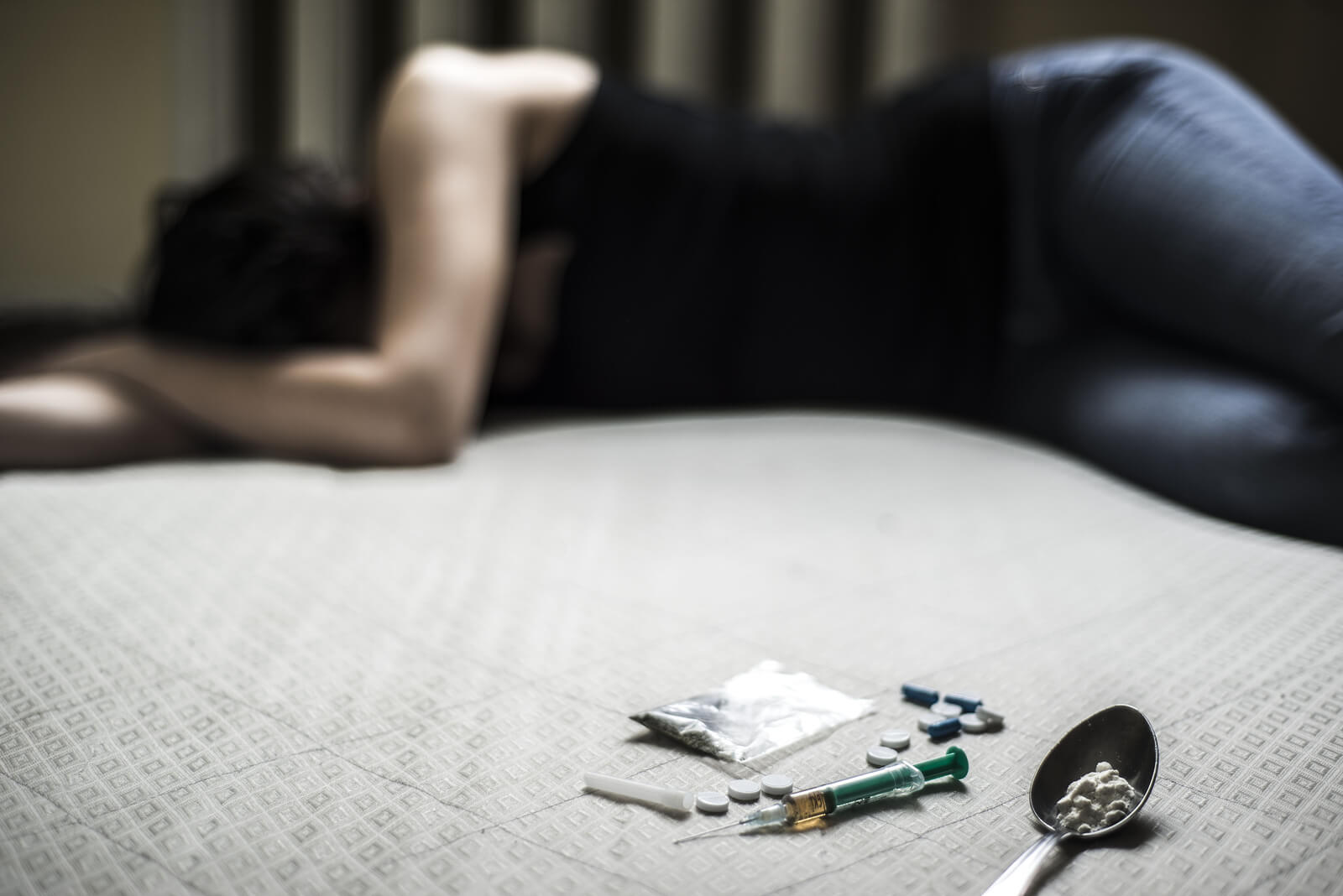
Each year, more and more people are needing ambien detox. Prescription drug abuse is a severe problem in the U.S. A staggering 130 people a day die from prescription painkiller abuse. A less common, but still devastating prescription drug addiction is Ambien abuse and addiction. Ambien is a powerful sedative that doctors commonly prescribed for insomnia. While the medication is highly effective for alleviating insomnia symptoms, it can also be abused. Ambien is also an addictive drug, and without help, people who abuse Ambien are at risk of overdose and other serious health complications. Long-term Ambien abuse can lead to depression and anxiety, the risk of injury, and cognitive impairment.
What is Ambien?
Ambien is a prescription sedative-hypnotic drug that comes in pill or tablet form. Ambien is a popular drug for treating insomnia and nighttime wakefulness, which an estimated 50 to 70 million American adults struggle with. Doctors write an estimated 38 million prescriptions for Ambien each year. Because Ambien is such a powerful drug with a risk of abuse, it is only prescribed as a short-term fix for insomnia.
The active ingredients in the drug Ambien impact a neurotransmitter called GABA. The medication activates GABA production, which in turn slows down the brain and central nervous system activity. People can take two forms of Ambien. Quick-release tablets are prescribed to people who have trouble falling asleep, while extended-release tablets are given to those who struggle with sleep maintenance.
Initially, Ambien was made as a non-benzodiazepine “z-drug.” The makers of Ambien manufactured the prescription to be just as effective as regular benzodiazepines like Xanax. But Ambien was not supposed to have as much of an addiction risk. Ambien is technically less-addictive than Xanax and is also less likely to cause severe withdrawal side effects. But while it is comparatively less severe than Xanax, Ambien is still an addictive drug that can cause withdrawal side effects. Unfortunately, Ambien has a similar abuse profile as regular benzodiazepine drugs.
What Happens When Someone Abuses Ambien?
People who take Ambien can develop a physical dependence on the drug in just two weeks. This can happen even if the person is using the drug as prescribed. An Ambien dependence is not the same as addiction, but it can be a sign that someone is headed down that path. When someone is dependent on Ambien, they will have developed a tolerance where they need more of the drug to get the desired effect. When they stop taking Ambien or cut back, they will experience withdrawal symptoms.
Without treatment, Ambien dependence can turn into an addiction to the drug. With a substance abuse disorder, people exhibit signs of tolerance, withdrawal symptoms, an inability to control use, and cravings for the drug. Most people don’t think they have a problem with Ambien addiction until they stop taking the medication.
Signs of Ambien Addiction
- Doctor shopping
- Frequent refills
- Taking more of the drug than prescribed
- Disorientation and impaired memory
- Extreme cravings for Ambien
- Social withdrawal
- Hiding drug use
- Rebound insomnia when not taking Ambien
Diagnosing Ambien Addiction
When someone abuses Ambien to the extent that it results in addiction, the official diagnostic term for the addiction is a substance use disorder. The Diagnostic and Statistical Manual of Mental Disorders (DSM) provides a list of criteria for diagnosing a substance use disorder:

Who is at Risk of Ambien addiction?
Anyone can become addicted to drugs. But in the case of Ambien addiction, most people start with a legal prescription of the drug. Most people who eventually become addicted to Ambien begin taking the medication for insomnia relief. Unfortunately, it’s common for people to underestimate the addictive properties of Ambien. This is why most doctors only prescribe Ambien for two weeks. But the drugs typically become less effective the longer someone takes it. If a person’s insomnia worsens, they may start taking more and more of the drug to get relief. But this creates a vicious cycle where someone becomes dependent on Ambien, and then can’t even fall asleep with the drug in their system. It can be incredibly difficult for someone to break this cycle without outside intervention.
Research shows that certain groups of people may be more likely to fall victim to Ambien dependence. For example, people with a history of drug dependence are at an increased risk of becoming dependent upon Ambien. Ambien dependence is also linked to depression, anxiety, bipolar disorder, and personality disorders, suggesting that people with mental health conditions are vulnerable to Ambien abuse.
Can Someone Overdose on Ambien?
Taking too much Ambien or abusing Ambien in combination with other central nervous system depressants can lead to a fatal overdose. Taking a large dose of Ambien or mixing Ambien with alcohol or other drugs causes intense sedative effects that can slow or stop someone’s breathing. Sings of an Ambien overdose include:
- Reduced respiration
- Slowed pulse
- Extreme drowsiness
- Coma
Ambien overdoses can be lethal, and it’s critical that emergency personnel are contacted immediately in suspected cases of Ambien overdose. More than half of all ER visits for suspected Ambien overdoses involve other drugs or alcohol. 26% of Ambien overdoses result in the patient needing to move to an intensive care unit. Women between the ages of 45 and 54 are the most likely to overdose on prescription Ambien.

Other Dangers of Ambien Abuse
Beyond addiction and overdose, there are other dangers associated with Ambien abuse. For example, research shows that when a person takes Ambien at night, there can be residual effects the next day. These effects can include memory impairment, difficulty driving, and worsened motor skills. Even when taking Ambien as prescribed, it is important to be cautious. People who abuse Ambien by taking larger doses than prescribed may be especially at risk of these residual side effects and may be more prone to accidents and forgetfulness.
Other troubling side effects, such as hallucinations, amnesia, sleepwalking, and nighttime eating, are also linked to Ambien use. These side effects can be more common in people who abuse Ambien because larger doses increase the risk of adverse effects. Women are also more likely to experience these adverse effects with Ambien use. What is important to keep in mind is that even though Ambien is a prescription medication with legitimate uses, it can come with dangerous side effects, especially when a person takes more medication than a doctor prescribes.
How is Ambien Addiction Treated?
Getting treatment for Ambien addiction is critical for health and safety. Fortunately, it is possible to recover from Ambien addiction and also treat insomnia effectively. In cases of Ambien addiction, the first step is usually a medically-assisted detox. During this phase of the recovery process, patients stay in a clinical setting where they receive care for withdrawal symptoms and cravings. Doctors may be able to prescribe less dangerous replacement medications for insomnia treatment. Anxiety is also a common withdrawal symptom in Ambien addiction recovery. By attending medically-assisted detox, patients can receive treatment for these distressing symptoms.
Once patients have safely detoxed from Ambien, they can begin the next step in the recovery process. Depending on the severity of the addiction, patients can attend either an inpatient or outpatient facility. The amount of time they spend in rehab will significantly depend on their personal needs, circumstances, and medical history. Counseling and group therapy are significant parts of the recovery process. Ongoing treatment and care are also critical to maintaining sobriety.
Since mental health conditions like depression and anxiety are linked to Ambien dependence, it may be necessary for people struggling with Ambien addiction to receive treatment to address underlying mental health issues. Improving depression and anxiety symptoms may help people to manage issues like insomnia without turning to Ambien abuse. It can also be helpful to learn proper sleep hygiene skills and practice techniques like meditation to improve sleep.
Are you or a loved one struggling with Ambien addiction? It’s never too late to reach out for help. At Mission Harbor Behavioral Health, our drug addiction counselors are standing by to answer any questions you have about the recovery process. Get started on your journey to sobriety today. Contact Mission Harbor Behavioral Health to explore your treatment options.
We offer multiple levels of care, including partial hospitalization services and intensive outpatient treatment. We also provide various treatment tracks, including mental health, substance abuse, and a working professionals program to meet your unique needs.
Get Help Now
Alcohol addiction is extremely difficult to overcome on your own.. Seek specialized help and let professionals guide you in your recovery.

